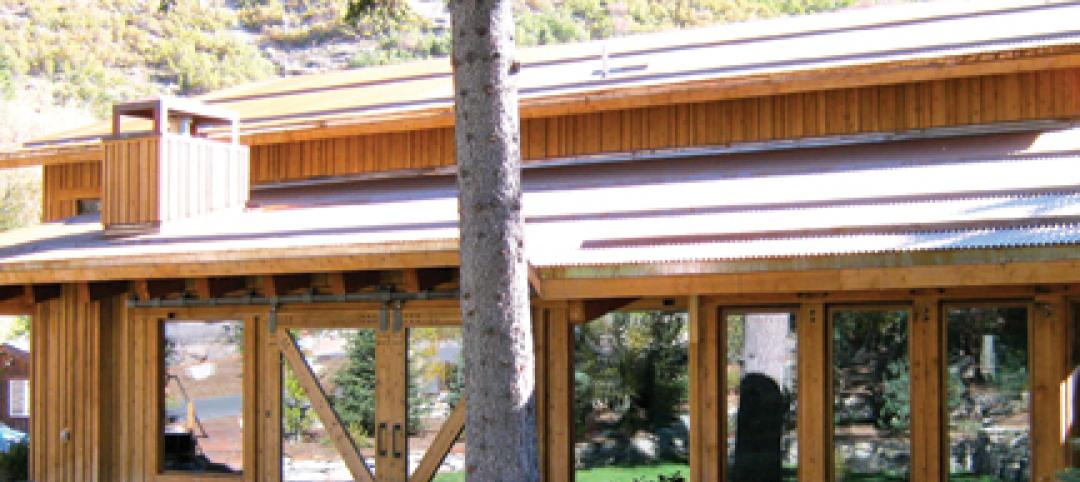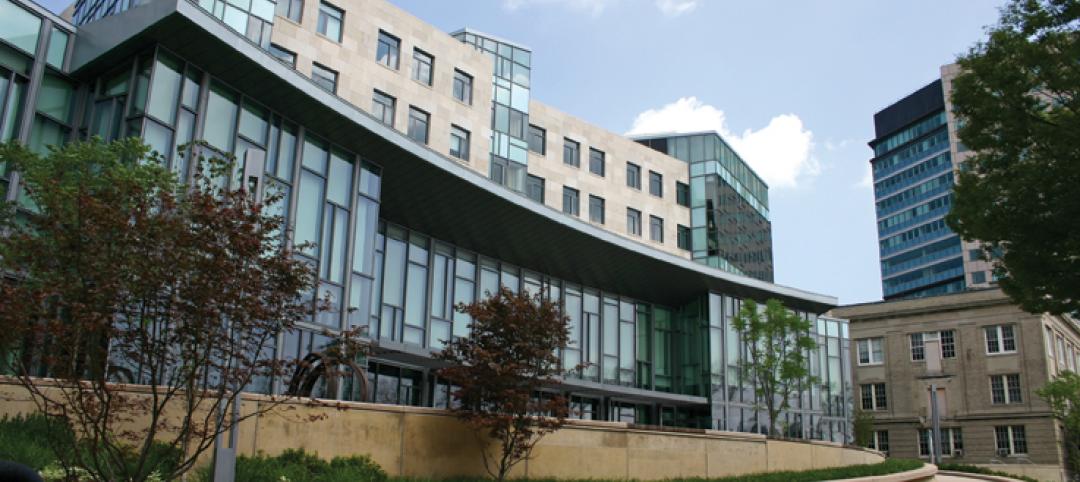Cuningham, a national design firm, is thrilled to announce the appointment of Jacqueline Dompe as the firm’s Chief Executive Officer (CEO).
Dompe will collaborate with Cuningham’s internal and external stakeholders to oversee the firm’s strategic direction and value.
“We are thrilled to have Jacqui join the Cuningham team,” says Board Chair Margaret Parsons, FAIA. “Her deep commitment to driving positive change and her proven track record aligning brand with successful business outcomes will be invaluable to our firm as we position ourselves in a rapidly changing industry.”
Dompe has more than 20 years of experience delivering value for a variety of companies, including those in the Architecture/Engineering/Construction (AEC) industry. She has earned a reputation over her career for being future-focused and committed to progressive solutions.
“What attracted me to Cuningham was a clear and genuine shared belief throughout the firm that design must be regenerative, achieve ecological benefit, and promote social well-being,” says Dompe. “I am eager to continue influencing a healthy culture while growing the awareness of the value of our work — and of course have lots of fun along the way.”
Cuningham Director of Strategy and Board Member Jeffrey Mandyck, AIA, praises both Dompe’s strengths as a leader and her ability to question and elevate the firm’s thinking, processes, and outcomes.
“We are honored to have Jacqui lead Cuningham’s strategic planning,” says Mandyck. “On both an individual and firm-wide level, we are excited to be challenged in finding new ways to produce a clear synchronization between who Cuningham wants to be and who we are.”
Previously, Dompe has held strategic business executive roles for technology start-up companies, regional minority-owned businesses, and global fortune 200 companies, including AECOM and JLL. Her work has influenced a wide variety of project types, including healthcare facilities, sports and entertainment venues, commercial development, and public infrastructure.
“With so many great people and opportunities here at Cuningham, I am excited to begin tackling the dynamic forces, internal and external, that our clients face,” says Dompe. “Together, we will better position the firm to anticipate how these forces impact our clients' businesses and provide greater value through a holistic approach to design solutions.”
Dompe holds a Bachelor of Arts in in Business Administration and Environmental Studies from the University of San Diego and a Professional Certificate in Urban Development & Planning from the University California San Diego.
Related Stories
| Dec 17, 2010
5 Tips on Building with SIPs
Structural insulated panels are gaining the attention of Building Teams interested in achieving high-performance building envelopes in commercial, industrial, and institutional projects.
| Dec 17, 2010
How to Win More University Projects
University architects representing four prominent institutions of higher learning tell how your firm can get the inside track on major projects.
| Dec 13, 2010
Energy efficiency No. 1 priority for commercial office tenants
Green building initiatives are a key influencer when tenants decide to sign a commercial real estate lease, according to a survey by GE Capital Real Estate. The survey, which was conducted over the past year and included more than 2,220 office tenants in the U.S., Canada, France, Germany, Sweden, the UK, Spain, and Japan, shows that energy efficiency remains the No. 1 priority in most countries. Also ranking near the top: waste reduction programs and indoor air.
| Dec 7, 2010
Are green building RFPs more important than contracts?
The Request for Proposal (RFP) process is key to managing a successful LEED project, according to Green Building Law Update. While most people think a contract is the key element to a successful construction project, successfully managing a LEED project requires a clear RFP that addresses many of the problems that can lead to litigation.
| Dec 7, 2010
Blue is the future of green design
Blue design creates places that are not just neutral, but actually add back to the world and is the future of sustainable design and architecture, according to an interview with Paul Eagle, managing director of Perkins+Will, New York; and Janice Barnes, principal at the firm and global discipline leader for planning and strategies.
| Dec 7, 2010
Green building thrives in shaky economy
Green building’s momentum hasn’t been stopped by the economic recession and will keep speeding through the recovery, while at the same time building owners are looking to go green more for economic reasons than environmental ones. Green building has grown 50% in the past two years; total construction starts have shrunk 26% over the same time period, according to “Green Outlook 2011” report. The green-building sector is expected to nearly triple by 2015, representing as much as $145 billion in new construction activity.
| Dec 7, 2010
USGBC: Wood-certification benchmarks fail to pass
The proposed Forest Certification Benchmark to determine when wood-certification groups would have their certification qualify for points in the LEED rating systemdid not pass the USGBC member ballot. As a result, the Certified Wood credit in LEED will remain as it is currently written. To date, only wood certified by the Forest Stewardship Council qualifies for a point in the LEED, while other organizations, such as the Sustainable Forestry Initiative, the Canadian Standards Association, and the American Tree Farm System, are excluded.
| Dec 7, 2010
AGC of A Survey: 2011 Construction Industry Hiring and Business Outlook
The Associated General Contractors of America wants to know about your construction company’s business outlook for 2011. Help out the Association by answering a few quick questions in their 2011 Construction Industry Hiring and Business Outlook survey.
| Dec 7, 2010
Prospects for multifamily sector improve greatly
The multifamily sector is showing signs of a real recovery, with nearly 22,000 new apartment units delivered to the market. Net absorption in the third quarter surged by 94,000 units, dropping the national vacancy rate from 7.8% to 7.1%, one of the largest quarterly drops on record, and rents increased for the second quarter in a row.










